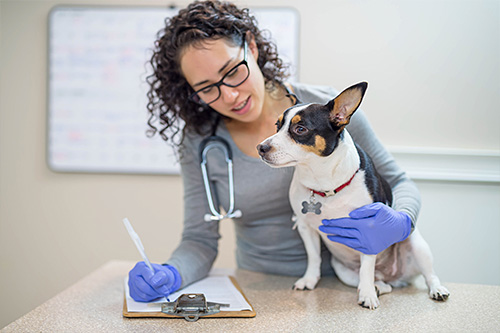To ensure a proper diagnosis, we often need to examine your pet. We begin a medical assessment by looking at your pet’s eyes, ears, and skin and checking his or her cardiovascular, neurological, gastrointestinal, and skeletal systems for any abnormalities. We will perform blood and/or urine tests as necessary to check your pet’s kidneys, liver, pancreas, and endocrine system, including the thyroid and adrenal glands. Based on your pet’s condition, we may recommend further diagnostic tests, such as radiography (x-rays), endoscopy (internal scoping), ultrasound, or biopsy.

There are several common endocrine disorders found in dogs and cats:
- Diabetes mellitus is caused by a deficiency in or resistance to the hormone insulin.
- Hypothyroidism, which is often diagnosed in dogs, indicates that the animal has low levels of thyroid hormone.
- Hyperthyroidism, which frequently affects cats, indicates that the animal has high levels of thyroid hormones.
- Addison’s disease (hypoadrenocorticism) and Cushing’s disease (hyperadrenocorticism) can also affect both species, although Cushing’s disease is rare in cats.
Contact us if your pet begins panting excessively, develops any skin issues (such as hair loss or dull coat), or shows any changes in behavior, energy levels, appetite, weight, water consumption, or urination.
